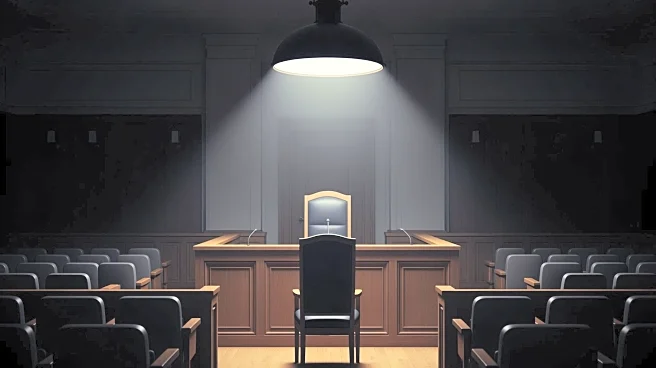What's Happening?
The U.S. Supreme Court is cautiously reviewing President Trump's plan to deploy the National Guard in Illinois, amid legal challenges. The Trump administration seeks to overturn lower court decisions that blocked the deployment during an immigration enforcement
surge. The Supreme Court has requested additional briefs, indicating a split among the conservative majority. The administration argues that the lower court's actions impinge on presidential authority and endanger federal personnel. However, Illinois officials argue that the deployment infringes on state sovereignty and local policing.
Why It's Important?
The case highlights the tension between federal authority and state rights, with implications for the use of military forces in domestic law enforcement. The outcome could set a precedent for future deployments and impact the balance of power between federal and state governments. The deployment of National Guard troops for law enforcement purposes raises concerns about the militarization of domestic policing and the potential erosion of civil liberties. The decision could also affect public trust in the military and its role in civilian affairs.
What's Next?
The Supreme Court's request for additional briefs suggests that a decision may not be imminent. The court's ruling could influence the scope of presidential powers and the legal framework governing military deployments within the U.S. The case may also prompt legislative action to clarify the conditions under which the National Guard can be deployed domestically. Stakeholders, including state officials and civil rights groups, are likely to continue advocating for their positions as the court deliberates.
Beyond the Headlines
The case underscores the broader debate over the use of military forces in domestic settings, a practice historically limited to extreme circumstances. The potential politicization of the military and its impact on recruitment and morale are critical considerations. The legal and ethical dimensions of deploying troops for law enforcement purposes highlight the need for clear guidelines and oversight to prevent abuses of power. The case may also influence public perceptions of the military's role in society and its relationship with civilian authorities.















